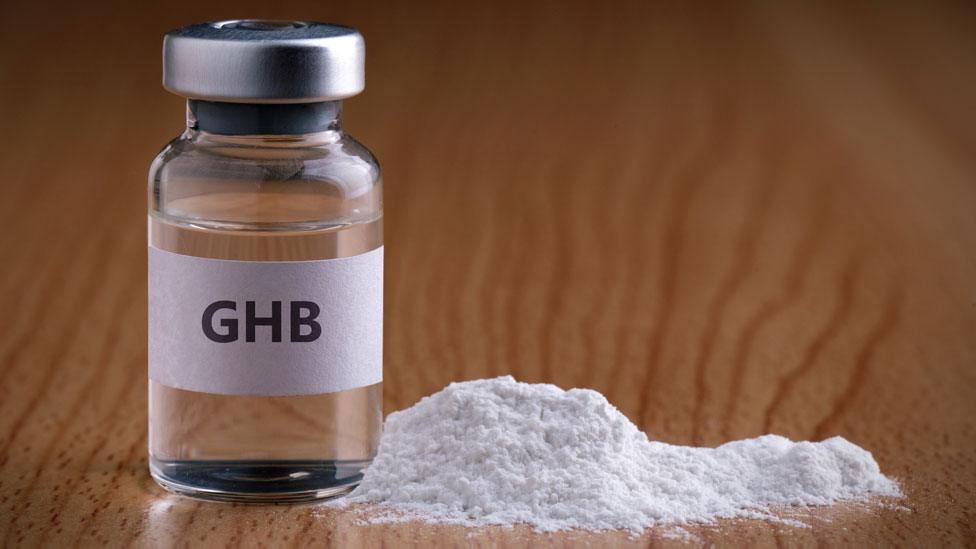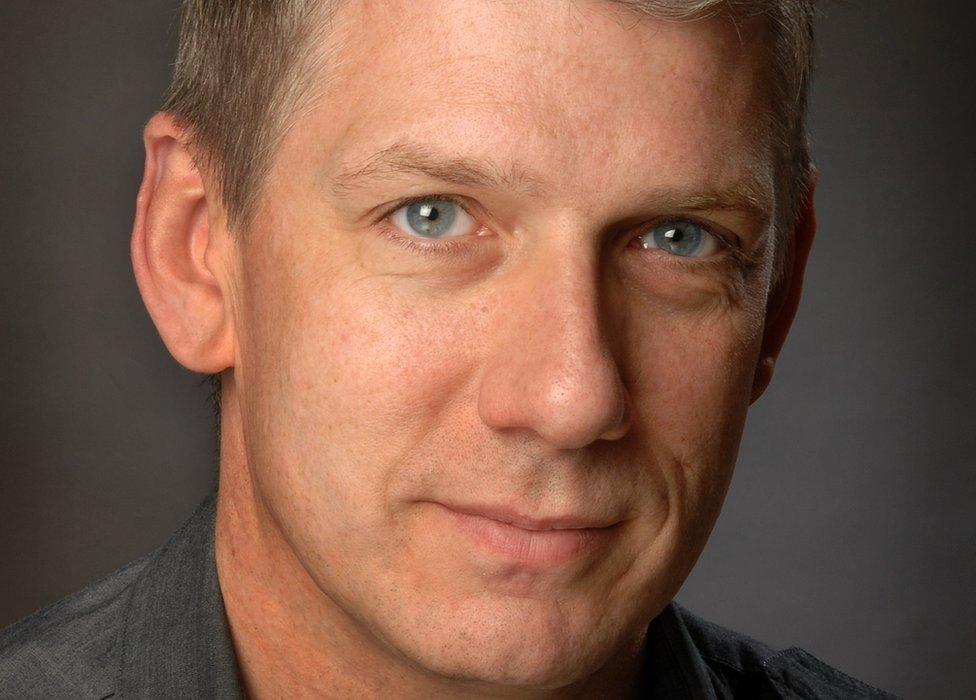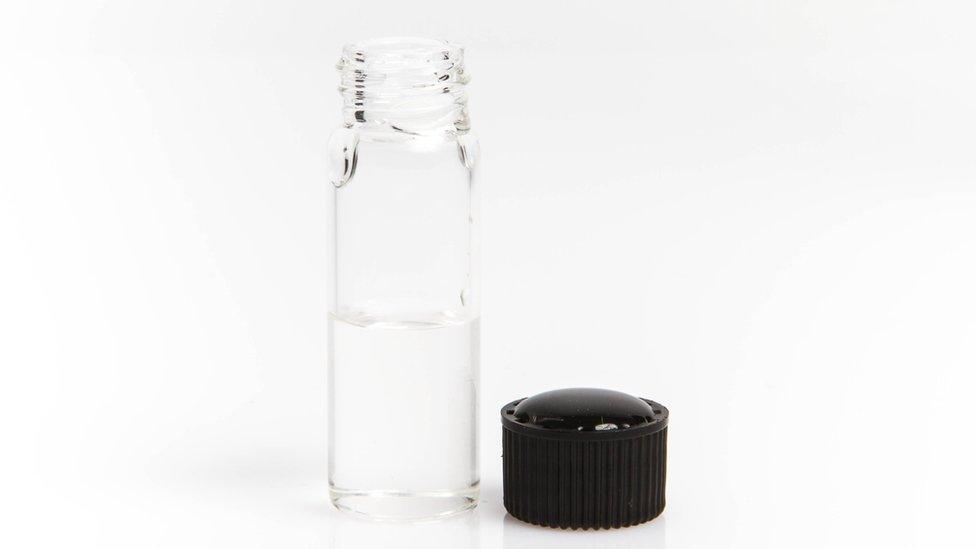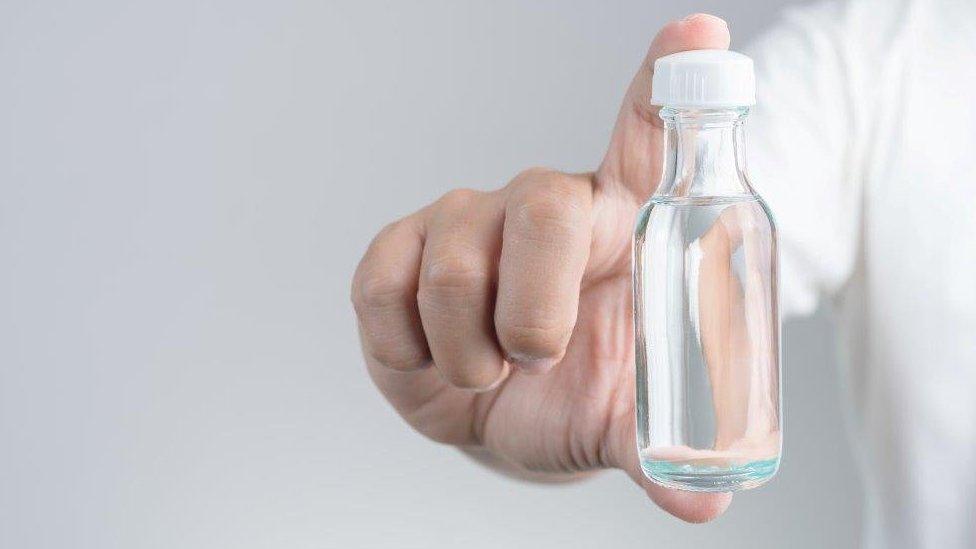GHB: Killer drug to be made a Class B substance
- Published

A drug used in attacks by the UK's most prolific rapist and the serial killer Stephen Port will be reclassified.
Home Secretary Priti Patel said GHB would move from a Class C to a Class B drug - the same as speed or cannabis.
Announcing the news, Ms Patel said it would mean tougher penalties for those found with it in their possession.
It follows a recommendation last year by the Advisory Council on the Misuse of Drugs (ACMD).
The three categories of drugs are Class A, Class B and Class C - with heroin, cocaine, ecstasy and LSD in class A, and speed, cannabis, ketamine, mephedrone and some amphetamines in Class B.
Currently GHB is in Class C, with anabolic steroids and some tranquilisers.
Ms Patel said that "GHB and related substances have been used to commit some truly sickening crimes including murder, sexual assault and robbery".
"I will do everything in my power to protect people from harm, which is why I am tightening restrictions around these dangerous substances," she said.
The Home Office said associated substances GBL and 1,4-BD - which convert to GHB in the body - would also be moved into Class B.
It added that, in future, the law would require a licence for anyone wishing to possess the associated substances for "legitimate" purposes.
GBL, a colourless liquid that is sold as an industrial cleaner, is only classed as a controlled narcotic when knowingly intended for human consumption.
Last year's ACMD review also recommended, external changes in education about the drug's impact, data collection on its use, and treatment and support for those at risk.
Testing for GHB and related compounds should become routine in cases of unexplained sudden death, the report also advised.
The government has yet to commit to these other recommendations.
A Home Office spokeswoman said they would be "considered in due course".
The review was commissioned following calls for a change in the law by the children of a man who was murdered with the drug.
Eric Michels, a father of three from south London, was killed in 2018 by a GHB dealer who gave him a catastrophic overdose in order to steal from him.
His sons Sam and Josh campaigned for the drug to be reclassified.

Eric Michels was murdered at his home in Chessington in August 2018
Sam Michels told the BBC: "We are pleased to know that this awful drug has finally been recognised for the real dangers it poses", adding that, "while we still intend to push reclassification to Class A, moving to Class B is a considerable step forward".
He expressed disappointment at the government's current "lack of dedication" to testing for GHB following unexplained sudden deaths, but said "we will continue to work" on the issue to ensure there is clear evidence on the number of related deaths.
GHB was the weapon of choice for Reynhard Sinaga, the most prolific rapist in UK history, and Stephen Port, the deadliest serial killer of the last decade.
Police believe that Sinaga, from Manchester, had over 200 victims. He was jailed last year after being convicted of 159 sexual offences.
Port murdered four young men in east London between 2014 and 2015 by giving them overdoses of GHB.
GHB, which was designated a Class C drug in 2003, usually comes as a powder that is dissolved in water.
The drug can lead to feelings of euphoria in very small doses, but in only slightly larger amounts can cause unconsciousness and death.
It is often implicated in sexual offences - as a so-called 'date rape' drug - and also in cases of theft.
- Published6 January 2020

- Published20 November 2020

- Published6 January 2020
